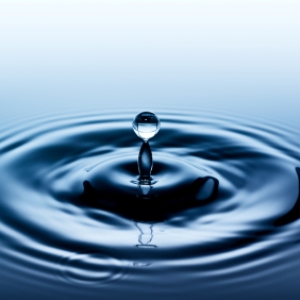
It is worrying when people proudly announce that they are having eight to 10 glasses of water a day, which one must presume is in addition to any other forms of liquid they ingest.
A contentious question
Let’s have a look at the contentious question of water consumption: How much liquid (note the emphasis on the term liquid) do you need to consume? How much liquid do you obtain from foods, all types of beverages and water? When should you consume more water? Is it possible to consume too much additional water which could harm your health?
Background information
The human body contains up to 72% of water, or 45 litres in an average 70 kg man, and a bit less in an average woman. We don’t, however, lose all this water on a daily basis because our bodies are designed to maintain a balance of water and minerals in our blood and other body fluids. Except in conditions where the water balance is impaired, such as heart failure and kidney malfunction, adults need 2500 to 3000 ml of liquid a day to stay healthy and prevent dehydration. If a standard glass/cup contains 250 ml, this translates to 10 to 12 glasses/cups of liquid i.e. water and other drinks, a day.
a) Water losses
We lose water through the skin by sweating, through the lungs, and by excretion in the urine and faeces.
b) Sources of water
Our main source of liquid is from the wide variety of beverages we consume on a daily basis, which include: tap water, cold drinks and mixers, hot drinks like tea and coffee, fruit juices, energy drinks, and even beer.
What most people tend to forget, is that food also contains water. Fruits and vegetables have a relatively high water content of up to 95%. In addition, our bodies produce water during metabolism.
To illustrate the interplay between liquid intake and production, and water losses, we can use the example of a healthy young man eating about 2100 kcal or 8 800 kJ, whose water input and output were determined in a metabolic study:
Intake
- Water content of food: 1115 ml
- Liquid drunk: 1180 ml
- Water produced by metabolism: 279 ml
Total water intake or production: 2574 ml
Output
- Urine: 1294 ml
- Water lost in faeces: 56 ml
- Water lost through skin and lungs: 1214 ml
Total water output: 2565 ml
In other words, the water requirements of this young man were more or less balanced. What is particularly interesting to note, is the fact that he obtained more or less the same amount of water from food as the amount he obtained from drinking liquids!
c) Factors that increase our need for water
- Hot and dry climate It is logical that the hotter and drier the climate, the more water we will lose by sweating, and the more liquid we need to drink. This is particularly true in South Africa in summer. However, in mid-winter when it is pretty cold in many parts of our country our need for water is reduced. It is a good idea to adjust your water intake to existing temperatures - drink more when it is hot, and less when it is cold.
- Physical exertion
If you perform hard, physical word and do a lot of exercise, you will lose more water by sweating and need to replace that water. Adjust your water intake to your physical activity - if you do hard, physical labour or exercise, then you should drink more. However, office workers who lead a sedentary life and do not exercise, should not overdo their water intake. - Medical conditions
If you have a fever, you should increase your liquid intake, particularly of vitamin C-rich fruit juices. When suffering from diarrhoea and vomiting, you need to replace the water and the mineral salts you have lost - drink diluted Game or black Ceylon or rooibos tea. Patients suffering from gout, liver problems and kidney stones should also increase their intake of water, but not excessively. - Slimming
If you drink water or any other low-energy liquid like black rooibos tea between meals you can keep those hunger pangs at bay, but don’t overdo things by drinking these beverages plus umpteen glasses of water a day.
Moderation is the key
The US National Academy of Sciences has convened an expert committee to investigate and review daily water recommendations. While we wait for their findings, it is a good idea to stick to a liquid intake of 10-12 glasses a day and remember that this includes the tea, coffee, fruit juice, energy drinks and other beverages.
Don’t drink eight cups of coffee a day and 12 glasses of water - you will wash essential nutrients like potassium, magnesium and even sodium and chloride out of your body which can be harmful.
The emphasis is on moderation and controlling your liquid intake sensibly by adjusting it to increased or decreased requirements and not drowning in too much water.




 Publications
Publications
 Partners
Partners










